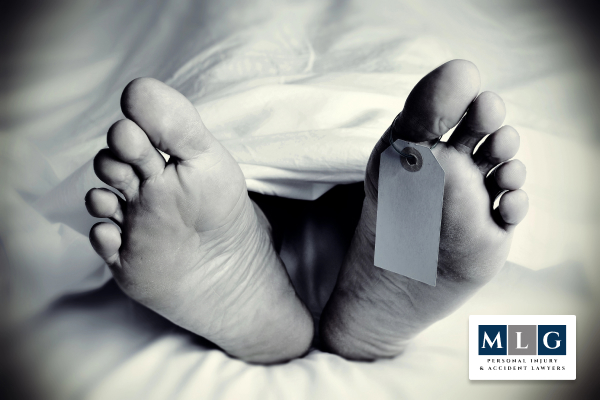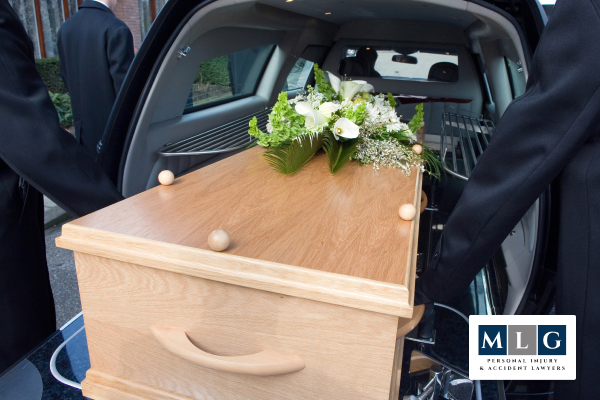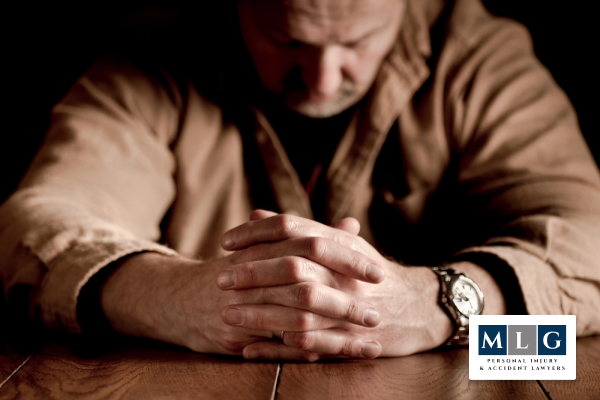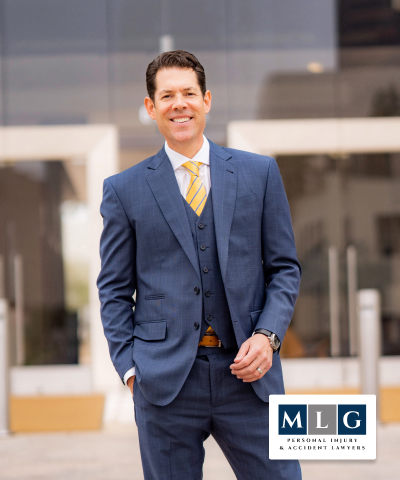
Funeral home negligence can deeply affect families during their time of grief, adding to their distress and creating a sense of betrayal. Marcereau Law Group understands the impact of these unfortunate incidents and are dedicated to seeking justice for those affected.
Our team is committed to holding negligent funeral homes accountable and ensuring that families receive the respect and care they deserve. Next, we will explore the various types of funeral home negligence to help you recognize and address these serious issues.
Learn how a reasonable person would expect a funeral director to act. Then, contact us for a free consultation.
Funeral home negligence occurs when a funeral home fails to provide the appropriate level of care, resulting in harm or distress to the deceased's family. This can include mishandling remains, unauthorized procedures, and improper conduct.
Negligence involves mistakes and a breach of the professional duty owed to clients. Families trust funeral homes to handle their loved ones with dignity and respect, and any deviation from this can constitute negligence.
In many cases, funeral home negligence is not immediately apparent, making it essential for families to stay vigilant. Recognizing the signs of negligence can help in taking timely action to address the issue.
Legal recourse is available to families who have been wronged, and understanding your rights is the first step in seeking justice. Our firm is here to guide you through this process and provide the support you need.

Funeral homes have a legal and ethical duty to provide their clients with a high standard of care. This duty includes respecting the deceased, following the family's instructions, and ensuring all procedures are carried out professionally.
When a funeral home accepts responsibility for handling a deceased individual, it must perform its duties carefully.
Mishandling of remains is one of the most distressing forms of funeral home negligence. Mishandling can include improper storage, incorrect identification, or even physical damage to the body. They might even mark the wrong body as your family member. Such actions show a complete disregard for the deceased and can cause severe emotional trauma to the family.
Proper handling and respect for the remains are fundamental expectations that funeral homes must always meet.

Unauthorized embalming occurs when a funeral home proceeds with embalming without the explicit consent of the family. This not only violates the family's wishes but can also go against religious or cultural beliefs.
Unauthorized procedures are a serious breach of trust and professional conduct. Families have the right to make informed decisions about how their loved ones are handled, and any deviation from their instructions is unacceptable.
Unauthorized cremation is a grave form of negligence where a body is cremated without the family's permission. This irreversible act can cause immense distress and a sense of loss beyond the death itself.
Families may choose burial or other methods based on personal, religious, or cultural reasons, and these wishes must be respected. Funeral homes must obtain clear and documented consent before proceeding with cremation.

Careless transportation of remains can lead to damage, loss, or incorrect delivery of the body. This negligence can occur due to inadequate training, improper procedures, or lack of care.
Proper handling and transportation are critical to ensuring that the remains are treated with dignity and respect. Families trust funeral homes to manage these logistics professionally; failure in this area can be deeply troubling.
Theft of personal property from the deceased is a serious and reprehensible act of negligence. This can include stealing jewelry, clothing, or other valued items.
Such actions violate the trust placed in funeral homes and add to the family's grief. Funeral homes are responsible for safeguarding the deceased's belongings and returning them to the family intact.
Hiring unlicensed staff can lead to improper handling of remains and other forms of negligence. Unlicensed or inadequately trained staff may need to follow proper procedures, resulting in substandard care.
Funeral homes must ensure all staff members are appropriately licensed and trained to perform their duties. Hiring licensed staff ensures that the deceased and their families receive the professional care they deserve.

Unprofessional conduct and emotional abuse by funeral home staff can aggravate families' grief. Poor conduct can include rude behavior, insensitivity, or failure to provide the promised services.
Families rely on funeral homes for support and compassion during difficult times, and unprofessional conduct can cause additional emotional harm. Funeral homes must uphold high professionalism and empathy in all their interactions.
If you suspect that a funeral home is not providing the utmost care or service, consider the following steps:

You should contact a lawyer to help you get the compensation you deserve if you suspect negligence. The following are some reasons to hire a lawyer:
Some examples of damages you can be compensated for in funeral negligence are the following:
Understanding the various types of funeral home negligence can be challenging. A few common questions we get asked include:
Common types include mishandling of remains, incorrect identification of bodies, overcharging, billing for services not rendered, and unprofessional conduct during services.
These forms of negligence can cause serious emotional and financial harm. Recognizing these common issues can help you identify potential problems early. Taking prompt action can prevent further distress.
You can prove negligency by gathering evidence such as incident documentation, witness statements, billing records, and expert testimony.
An attorney specializing in funeral home negligence can assist in this process. They will know what evidence is needed and how to present it effectively. Legal expertise is crucial for building a strong case.
Legal actions that you can take if you suspect a funeral home negligence include filing a complaint with regulatory bodies, pursuing a civil lawsuit for damages, and seeking compensation for emotional distress, financial losses, and punitive damages with the help of an attorney. Each option has its procedures and requirements.

Funeral services honor the deceased's memory and comfort grieving families. However, cemetery negligence, fraudulent practices, and unethical behavior can deeply violate loved one's wishes and trust. From mishandling cremated remains to improper embalming, such actions cause serious mental anguish and distress.
Marcereau Law Group is dedicated to protecting your rights and seeking justice for any form of funeral home negligence. By addressing these issues, we aim to bring peace and closure to affected families.
Contact us for a consultation and receive compensation for losing a loved one to neglect.
Schedule Your Free Consultation
"*" indicates required fields


"*" indicates required fields